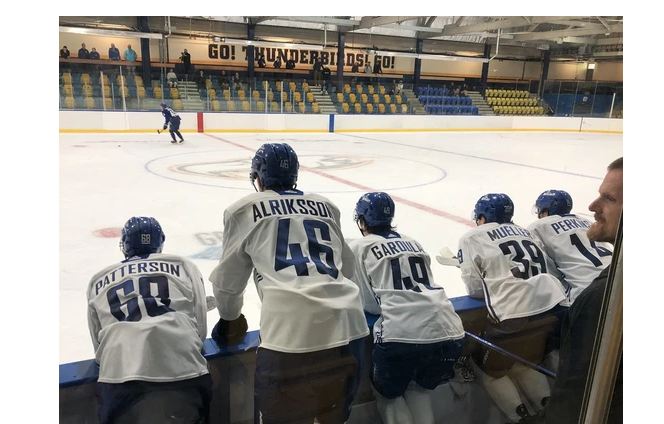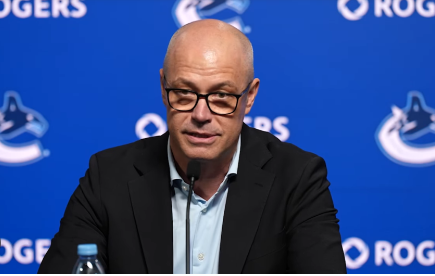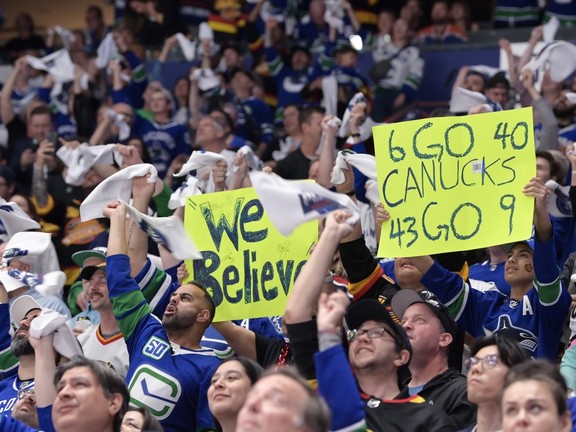“If you’re going to reach the NHL, it will take time”: Canucks prospects conclude development camp
Team Blue and Team White played to a 4-4 draw in their end-of-camp scrimmage, with the dinner bill decided by a shootout.
A typical aspect of any NHL team’s development camp is that players are there for a good but short time.
However, “a good time” here means players are pushed to their limits, emerging as better athletes by the end.
A clear indicator of a successful camp is players placing bets on the end-of-week scrimmage, as seen with the Vancouver Canucks’ prospects before Thursday’s final game at the University of B.C.
For the record, after the teams — each led by a Sedin twin and development coaches Mike Komisarek and Mikael Samuelsson — tied their scrimmage 4-4, Team Blue won the shootout. Consequently, Team White will buy dinner for Team Blue.
Over the four official days (five for early arrivals), a strong camaraderie developed among the Canucks draftees and invitees. This pleased Komisarek, who praised their competitiveness.
“You love the competitiveness. We emphasize being deliberate and having intentions on the ice or in the gym, but that fire, that competitiveness, surpasses everything,” he said.
Despite most players not achieving their NHL dreams, coaches stress that confidence and a desire to compete are essential to even have a chance.
“Focused, try to do their best,” Samuelsson said about the players’ efforts.
Team-building was a significant focus, evident in the game.
This year’s camp was smaller than previous ones, which was intentional, according to Samuelsson.
“What’s the purpose of a really big camp?” he asked rhetorically. He believes the size was perfect for their objectives. With 38 players, it was about a third smaller than past camps.
The goal was to concentrate on the players in the system, with some outsiders to provide competition. Too many invitees, however, could distract from the main focus.
“We are drafting our players; we’ve got to believe in those guys,” Samuelsson said. Once scouts find the talent, it’s up to the development staff to turn them into professionals.
Ultimately, it’s up to the players to take the feedback and make the most of it.
“You’ve got to have patience as you try to do the right things. If you’re going to hit the NHL, it will take time,” Samuelsson emphasized as the players headed home. “This is one step further, one step closer to reaching their goals.





